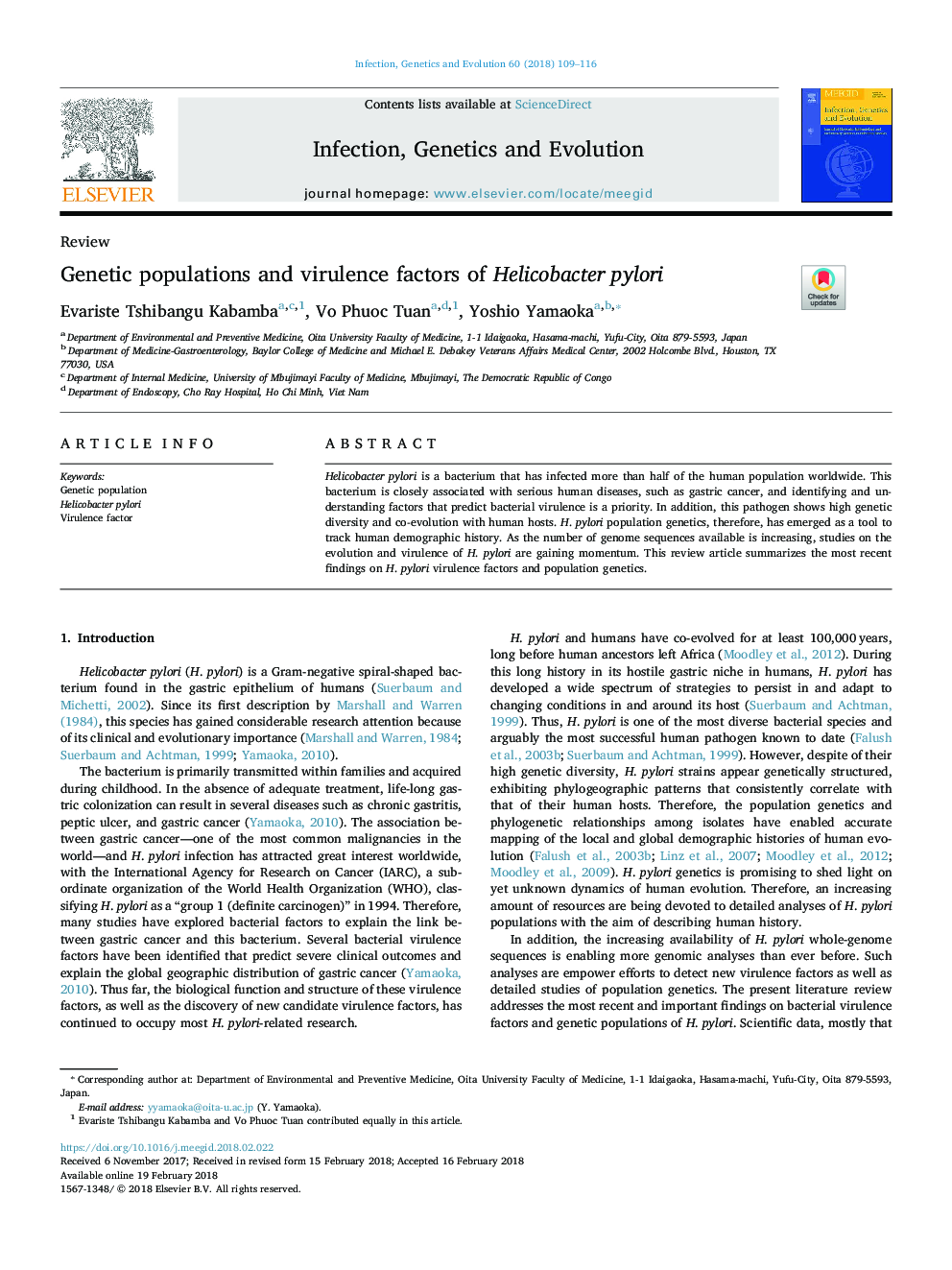| Article ID | Journal | Published Year | Pages | File Type |
|---|---|---|---|---|
| 8646859 | Infection, Genetics and Evolution | 2018 | 8 Pages |
Abstract
Helicobacter pylori is a bacterium that has infected more than half of the human population worldwide. This bacterium is closely associated with serious human diseases, such as gastric cancer, and identifying and understanding factors that predict bacterial virulence is a priority. In addition, this pathogen shows high genetic diversity and co-evolution with human hosts. H. pylori population genetics, therefore, has emerged as a tool to track human demographic history. As the number of genome sequences available is increasing, studies on the evolution and virulence of H. pylori are gaining momentum. This review article summarizes the most recent findings on H. pylori virulence factors and population genetics.
Related Topics
Life Sciences
Agricultural and Biological Sciences
Ecology, Evolution, Behavior and Systematics
Authors
Evariste Tshibangu Kabamba, Vo Phuoc Tuan, Yoshio Yamaoka,
